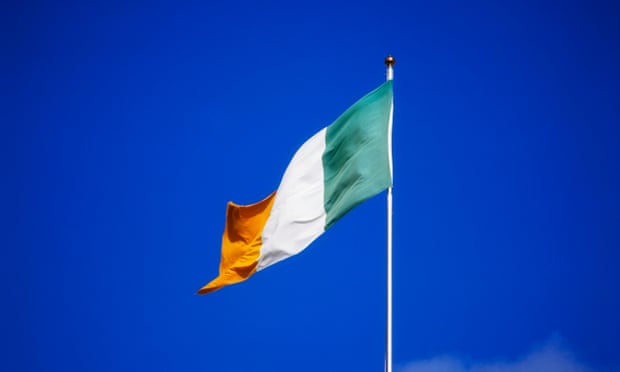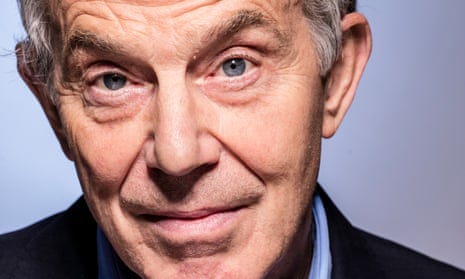Tony Blair will be 65 this year. In the Britain he grew up in, that used to mean the male retirement age. Bring it on, many will say. But these once-immovable milestones no longer exist. They certainly do not apply to the former prime minister. For Blair has made it crystal clear in his new year intervention on Brexit that he has absolutely no intention of quitting the public stage any time soon.
This of course appals many people for serious reasons that do not need to be re-rehearsed here. Even those who continue to think well of him have their doubts. Blair is a permanently damaged figure. Whenever he enters the public arena, he always risks making himself, not what he says, into the issue – John Humphrys’ self-important aggression against Blair on the Today programme on Thursday showed this process at its most depressing. But there are three serious reasons why the rest of us should make the effort to focus on what he says, rather than on him.
The first of these is that Blair articulates the case against Theresa May’s Brexit strategy more clearly and more devastatingly than anyone else in British public life. If that is anyone’s fault, it is not Blair’s. He is putting into words things that no one else is managing to do so well, so succinctly or with such urgency. If Jeremy Corbyn made the same case – which is backed by an overwhelming majority of Labour party members, research has showed – things would be very different. But he isn’t. If only the TUC’s Frances O’Grady could be persuaded to take up the mantle of spearheading the opposition to Brexit, many things would be possible.
Please read Blair’s new article on Brexit nevertheless. His arguments are a wake-up call for the political year. As Blair says, 2018 is when real decisions must be made – about the terms, about soft or hard Brexit, and about a referendum on the final deal. The pivotal decision about Ireland – on which so much else hinges – has merely been postponed. The four options that Blair sets out for Britain – remain and reform, leave but stay in the single market and customs union, exit all structures but make a bespoke deal, and make a virtue of leaving – are the only choices facing Britain. Twelve months from now, Britain will have embarked on one of them. This matters, massively.
Quick GuideWhy is the Irish border a stumbling block for Brexit?
Show

Counties and customs
Inside the EU, both Ireland and Northern Ireland are part of the single market and customs union so share the same regulations and standards, allowing a soft or invisible border between the two.
Britain’s exit from the EU – taking Northern Ireland with it – risks a return to a hard or policed border. The only way to avoid this post-Brexit is for regulations on both sides to remain more or less the same in key areas including food, animal welfare, medicines and product safety.
The 'backstop' in Theresa May's Withdrawal Agreement was intended to address this - stating that if no future trade agreement could be reached between the EU and the UK, then rules and regulations would stay as they are. This has been rejected by Brexit supporters as a 'trap' to keep the UK in the EU's customs union, which would prevent the UK striking its own independent trade deals.
There are an estimated 72m road vehicle crossings a year between Northern Ireland and the Republic of Ireland, and about 14% of those crossings are consignments of goods, some of which may cross the border several times before they reach a consumer. Brexit supporters say this can be managed by doing checks on goods away from the border, but critics say it will be difficult to police this without any physical infrastructure like border posts or cameras, which could raise tensions in the divided communities of Ireland.
Interactive: A typical hour in the life of the Irish border
Blair accepts that securing continued EU membership involves a task of persuasion and good timing. Gordon Brown said much the same a few weeks ago. But the trigger for this particular article is his frustration with the Labour party for its caution and equivocation on Brexit. Though Blair does not mention Corbyn by name, he is explicitly critical of Labour for having its own cake-and-eat-it strategy. The final few paragraphs in particular read like a primer from Blair to Corbyn on how to move beyond that.
As so often, Blair can give the impression that a highly ambitious political goal is achievable by an effort of will, his own leadership skills and by well-honed political messaging. This over-optimism has always been one of his faults. Read his article closely, however, and it is actually more equivocal about the options than it may appear. Blair keeps his views open on a second referendum. And he comes close to saying that the ultimate test of policy is about single-market membership – in other words a soft Brexit rather than no Brexit at all. This puts him quite close to the current stance of Labour’s shadow Brexit secretary, Keir Starmer.
There is a second reason why the new year is a good moment to be more open to what Blair and those like him are saying. Britain faces several domestic political crises at the start of 2018, all of them made worse by Brexit. Labour is within sight of winning power, but still some way off. Its chances will depend in significant part on how it behaves as a party between now and what may be a distant election, and upon its ability to persuade those who were unpersuaded in June 2017. That means a clear programme, credibility and party unity are paramount.
This in turn means showing that Labour can be a tolerant coalition of traditions and ideas. There is much more to this than bringing a wider group of talent into the shadow cabinet. Labour needs to prove, from top to bottom, that its left respects its right and that its right respects its left. That wasn’t so in much of Blair’s time – with eventual dire consequences – and at times there is not much evidence of it in Corbyn’s either. But the current armistice is better than a civil war. The longer it holds, the better.
Quick GuideWhat are Brexit options now? Four scenarios
Show
Staying in the single market and customs union
The UK could sign up to all the EU’s rules and regulations, staying in the single market – which provides free movement of goods, services and people – and the customs union, in which EU members agree tariffs on external states. Freedom of movement would continue and the UK would keep paying into the Brussels pot. We would continue to have unfettered access to EU trade, but the pledge to “take back control” of laws, borders and money would not have been fulfilled. This is an unlikely outcome and one that may be possible only by reversing the Brexit decision, after a second referendum or election.
The Norway model
Britain could follow Norway, which is in the single market, is subject to freedom of movement rules and pays a fee to Brussels – but is outside the customs union. That combination would tie Britain to EU regulations but allow it to sign trade deals of its own. A “Norway-minus” deal is more likely. That would see the UK leave the single market and customs union and end free movement of people. But Britain would align its rules and regulations with Brussels, hoping this would allow a greater degree of market access. The UK would still be subject to EU rules.
The Canada deal
A comprehensive trade deal like the one handed to Canada would help British traders, as it would lower or eliminate tariffs. But there would be little on offer for the UK services industry. It is a bad outcome for financial services. Such a deal would leave Britain free to diverge from EU rules and regulations but that in turn would lead to border checks and the rise of other “non-tariff barriers” to trade. It would leave Britain free to forge new trade deals with other nations. Many in Brussels see this as a likely outcome, based on Theresa May’s direction so far.
No deal
Britain leaves with no trade deal, meaning that all trade is governed by World Trade Organization rules. Tariffs would be high, queues at the border long and the Irish border issue severe. In the short term, British aircraft might be unable to fly to some European destinations. The UK would quickly need to establish bilateral agreements to deal with the consequences, but the country would be free to take whatever future direction it wishes. It may need to deregulate to attract international business – a very different future and a lot of disruption.
To say this is not to ask the Labour left to embrace Blair or everything he says. But it is to suggest that the left acknowledges that the soft left (to use a pre-Blair term) and the Labour right are legitimate alternative traditions within the Labour coalition, which have achievements and principles to contribute. Likewise, it is to suggest that any Blairites who simply dismiss the achievements, principles and, at times, heroism of the left are making the equal and opposite error. As the New Yorker’s Adam Gopnik puts it in a review of John Bew’s biography of Clem Attlee this week, it is possible to hold to moral absolutes while at the same time displaying a prolific appetite for conciliation.
This leads to the third reason why Labour supporters should make a New Year resolution to allow a place for Blair’s ideas to be heard. For 15 years, Blair has provided an excuse for some in the Labour party – on the right as much as the left – not to think about the large and difficult questions that face 21st-century Britain, and which would face any Labour government of whatever ideological stripe. Blair and accusations of Blairism have been cynically and very successfully exploited to advance the left’s cause.
I’m not saying that aspects of Blair’s career and the approach of some Blairites did not provoke some of this. They did. There were big New Labour mistakes. But it is time to move on. Labour needs, in another Gopnik phrase about Attlee, to be “radicals of the real”. No issue is more real and more pressing than Brexit. It is time for Labour to stop refighting ancient wars and focus ecumenically on the radical and real task in hand.

